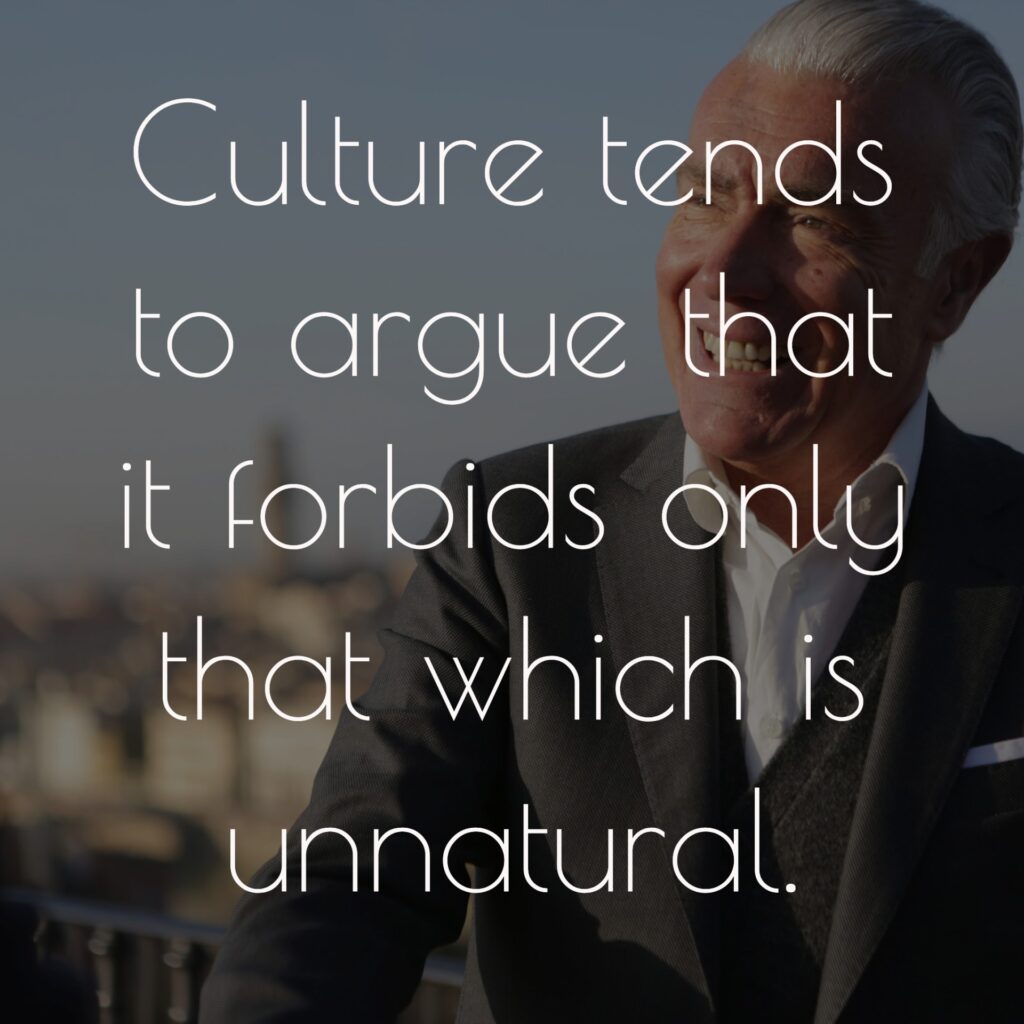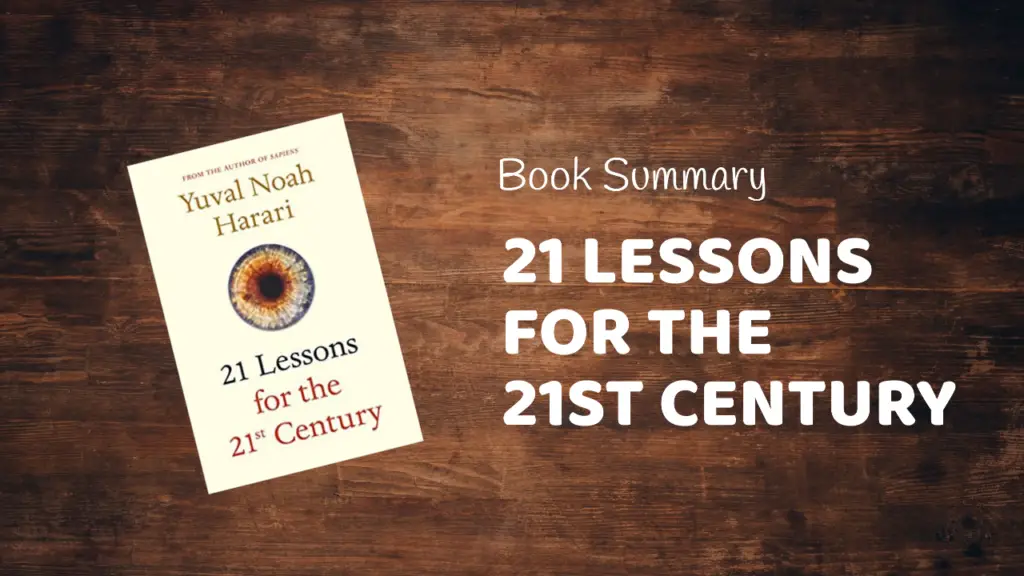One-Sentence Summary:
In his book 21 Lessons For The 21st Century, Yuval Noah Harari depicts some of the most significant challenges the human race will face soon due to technology while assisting us plan for the uncertain future.
Famous Quote by Author Yuval Noah Harari :

About the Author
Professor Yuval Noah Harari is an Israel philosopher, historian, and best-selling author of Sapiens, Homo Deus, and 21 lessons for the 21st century. With over 27.5 million copies sold, he is regarded as one of the most prominent public intellectuals today.
3 Key Points of 21 lessons for the 21st century
- With advanced technology, we don’t know a lot yet, but one sure thing is that unskilled labor will be monstrous to substantial companies.
- Through his book, 21 lessons for the 21st century, Yuval Noah Harari addresses the significant challenges the society will encounter shortly.
- You get to answer such questions: “What will I do the moment everything is automated” and “Is religion still appropriate?”
The Five Big Ideas
- With the increasing number of the human population, mass cooperation is vital for survival and thriving. This is a critical way to keep our society flourishing and our planet alive.
- Although we don’t need to lose much sleep nowadays, our prevailing society presents various reasons for technology.
- Artificial Intelligence is prevailing over humans in many tasks regarding conscious thought- from driving cars, communicating, budgeting to analyzing.
- We have to regularly improve our skills to put food on the table and make good money.
- We need to have a clear vision in our minds concerning our imaginations.
21 Lessons for the 21st Century Book Summary
How do you intend to prepare your children for the years ahead? This is a question asked by most human society, especially nowadays, in the technologically advanced era. Nobody has a grasp of how the world might look ahead, unlike in the past, where human beings could postulate what the future held.
That, however, doesn’t necessarily mean its worthless preparing for the uncertain future. In the book 21 lessons for the 21st century, Harari highlights some of the enormous challenges humans face and how to deal with them.
Here are the five key lessons from 21 lessons for the 21st century:
Lesson 1: We Have Physical and Cognitive Abilities
When it comes to physical abilities, we can’t outdo sophisticated machines that, for example, transfer data from one software program to another in a fraction of seconds. And that’s perfect. With advanced technology, more products have been crowded in the market than we can consume.
Thanks to this automation, humans are now suited in cubicles and focus on cognitive abilities, including making budgets, analyzing, safeguarding social media feeds, and conversing with people.
This automation has also led to an increased human life span due to drugs and goods that enable them to maintain good health.
However, Artificial Intelligence has now begun to outdo humans in most of these skills. Machine learning algorithms are quickly escalating in our society. Although they promise quality service, which is super exciting for that case, this will eventually lead to the suspension of many human occupations in the future.
For instance, in factories, many people are hired to operate various machines that perform the actual task. Hopefully, in the future, there will be more personnel to maintain the algorithms which make budgets, analyze, safeguard social media feeds, converse with people, and many more jobs that pay well.
Lesson 2: Whoever owns data wins
Different ideologies shape how humans observe the world. Whichever attracts the most attention tends to steer our history for years. For instance, in the 20th century, liberalism, communism, and fascism were up the totem pole. In the 21st century, technology tends to steer the world by extensively beating all its competitors conspicuously.
With technology as our prime ideology, data has inevitably grown to be the most priceless asset, which is why almost everyone struggles for it without considering its implications. For example, in many nations, politicians have been on the forefront, steering for their countries’ triumph against the giant tech race.
For politicians, this bewilderment turns out to be a threat. People will be spooked, feel ignored, frustrated, and start realizing their elected leaders have neglected the most vital agendas. Yet we know little to nothing concerning matters technology as they do.
Lesson 3: We need to build significant global communities
Although social media is termed evil for some people, it’s still an excellent platform for nurturing and building communities.
Nowadays, it’s much possible to survive all by yourself. You can order groceries and food online, work remotely, and chat on social media without speaking to anyone for years. This might sound strange, but indeed it’s an option, and I’m sure lots of people practice this lifestyle.
Even so, it isn’t easy to engage in a conversation with people behind Twitter profiles and screens; we need to communicate to move forward and live fulfilling lives.
Nowadays, we can quickly create significant global communities- thanks to online social networks. These networks enable us to connect and start meaningful conversions on things that matter, such as; technology, consumerism, and global warming.
With other people being successful, they particularly don’t like relating to the other less fortunate group. However, even if you don’t rely on other people’s help, these people might need you. Building global communities are essential for the success and survival of our species.
Lesson 4: We believe we know it all, yet we don’t- and that’s dangerous
In many nations, it’s normal for the minister of health to suddenly become the minister of education. Highly sensitive positions are swapped like presents, which is insane. How could one expertise in both military defense and medicine?
In reality, however, this problem transpires us all. This is why Harari emphasizes more on cognitive biases, precisely ‘the knowledge illusion.’ We think we know more than our ancestors when we don’t.
We tend to rely more on professionals to survive. We can’t look for our food, make clothes, or even build a shelter for ourselves. Just because we have access to the world’s knowledge, we think we’re smart. This can never be true until we hunt for the experience and harbor in our heads.
However, we should always stay humble and ensure to still searching for knowledge.
Lesson 5: Feel free to conceive your own culture
One of the most discussed topics online is on finding meaning in life. It’s what sellers try to initiate in their products. They don’t want to sell you products, but to ensure their products align with both the world’s views and desires and then sell you more products.
However, the meaning of life isn’t something you can buy. It isn’t a ready-made product that you can find in the supermarket, next to books or other stationery. Meaning of life is something you create in your head. It’s you who decides to give everything around purpose through your own beliefs and choices.
For instance, since you may decide to believe in God, this doesn’t necessarily make him real. It is we human beings that wrote the Bible and eventually gave life to these stories.
As Harari wrote in the book, he termed the universe as nothing but just a meaningless jumble of atoms. Nothing is considered sexy, beautiful, or sacred; it is human feelings that make it so. He further illustrated that we would only be left with a bunch of molecules
by taking away human emotions.
There is no meaning in life or an afterlife. It’s you, yourself who give meaning to your own life and the universe in general. It’s in your power to take control of your future and create your way of life. Just ensure in anything and everything you do, to create something worth living.
Inspiration is More Important Than Manipulation
The most important thing when it comes to leadership is to have the right vision. Your vision and beliefs are what define you as a leader.
A leader with a vision and understanding of their core reason can set out to be more successful than others. This is mainly because they’re able to inspire others in ways no one else can.
Leaders who know why they want to do something tend to inspire others. The more in-touch a leader is with their purpose, the better they’re able to figure out what they want to do.
It makes everything else easier for them to process.
Most people focus on what they want to do first rather than focusing on why. Simon Sinek believes that focusing on the “Why” is what differentiates exemplary leaders from others.
A leader who has inspiration and a motive can stand out from the crowd and attract others. Whereas, a leader who only knows what to sell is going to try all sorts of tactics to get the audience’s attention.
Following The Golden Circle
Simon Sinek focuses on the Golden Circle in his book and his speeches. It is a vital part of learning how to be an effective leader in this world. It all starts with finding your sense of purpose- your “Why”. It is the ultimate goal for leaders.
While mainly people believe in the process of What-How-Why, Simon Sinek tells you to focus on Why-How-What. It is completely different than how things go about in most organizations. But, this works if you wish to become as successful as some of the greatest leaders of the world.
With a sense of purpose, you have the drive to do better and give people something valuable. Take Apple for instance. Had they started with “We offer great computers, you should buy one.”, they wouldn’t have been able to build the empire that exists now. Apple focuses on showcasing its belief first, and other things come later.
This is also primarily what the book focuses on- how leaders starting their journey with their beliefs intact are more prosperous.
If you’re focused on “What”, then your whole time will be spent trying to attract people to your product. Whereas, if your ultimate focus is the reason behind your work, then you’re sure to attract loyal customers.
How Trust is Built
Perhaps the most essential part of the book is building trust with your employees and customers. Once you have a defined reason, you will attract people who believe in it.
It all starts by focusing on the structure within the organization and getting your employees to trust you.
Inspirational leaders are more likely to get people to work effectively. Since you have the drive and determination, you’re able to motivate your employees better.
If your actions showcase your belief at work, then you’re likely to increase the job satisfaction levels of your employees.
Moreover, you build a sense of trust with your customers as well by telling them what you value. If their beliefs align with yours, then they reach out to your organization and remain with you for a long time.
So, it is essential to get your actions in-sync with your beliefs for customers to trust you.
How Do You Bring People On-Board?
With a defined purpose, people who have the same values will find their way towards you. They will know what you have to offer in terms of your vision and help you create better possibilities.
Every effective leader requires a team who can help them carry out their plans effectively. Look at all the famous duos- Walt and Roy Disney, Bill Gates and Paul Allen, and Steve Jobs and Steve Wozniak. They all had similar visions that pulled them together and build enormous things.
Understanding and implementing what you believe in will lead you to get the right people on board for your journey. Leaders need people around them. The only way to find the right ones is if they start in the right direction.
21 Lessons for the 21st Century Review
21 Lessons for the 21st century navigates through the muddy waters and information overwhelm of the online world and answers the most sought after questions on today’s world. While most concepts introduced here might be new to some, Harari has a distinctive way of making you appreciate what you know by expressing crucial ideas that make for entertaining reading.
Who I would recommend 21 lessons for the 21st century book to?
I would recommend this book to the 50- year old dad who feels lost into this new technology, the upcoming generation trying to figure out life in this century, and every other listener as an accessory to guide you into your journey to the 21st century.
Read the full book summary in 12min
Get the book on amazon


